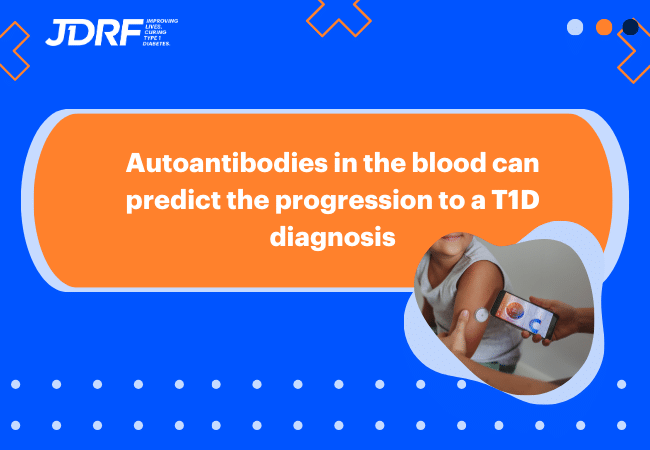T1D Research Roundup: December 2021
Our research roundups bring you the most exciting T1D research stories from around the world – the new advances in treatment, devices and knowledge that are making the biggest impact in the fight to cure, treat and prevent T1D.
Here’s what you need to know in T1D research this month:
Exciting results from clinical trials of stem cell therapies
Vertex Pharmaceuticals announced initial data from its early-stage clinical trial of a stem cell replacement therapy, VX-880. Vertex’s therapy involves fully differentiated islet cells, derived from stem cells, that are given as an infusion to people with T1D. The results showed that the first person treated with VX-880 in the clinical trial required 91% less insulin, 90 days after receiving the therapy. They also had a reduction in HbA1c without severe hypoglycaemic events. While this data is only from one participant, it’s an exciting step forward for cell replacement therapies.
ViaCyte has also published results from an early-stage clinical trial of its implanted cell replacement therapy. The data show that the stem cell therapy can produce insulin in people with type 1 diabetes. ViaCyte’s therapy consists of a small device implanted under the skin, which is loaded with precursor stem cells. These cells have the ability to mature into insulin-producing beta cells – and these results represent the first evidence of this occurring in humans. However, while the implanted cells did produce insulin in response to food, it wasn’t enough to stop the trial participants needing to take insulin altogether. ViaCyte now plans to run follow-up trials and modify the device so that it produces insulin more strongly and consistently.
A new oral treatment for T1D
Researchers at Yale University have developed a new oral medication for type 1 diabetes. In studies in mice, the pill not only restored insulin levels but also reversed the inflammatory effects of T1D. This two-pronged approach means the medication could help treat the underlying cause of T1D, while also maintaining insulin levels. The insulin delivered through the medication also worked seven times faster than insulin delivered via standard methods.
Type 2 diabetes treatment can prevent T1D complications
Data presented at the American Society of Nephrology (ASN) annual meeting has shown that SGLT2 inhibitors – a type of drug used to treat type 2 diabetes – potentially help protect the kidneys and hearts of people with type 1 diabetes. In a clinical trial, the 5-year risk of cardiovascular disease was reduced by 6% among people receiving SGLT2 inhibitors, while the 5-year risk of kidney disease was reduced by 5%. While SGLT2 inhibitors carry other risks, including an increased risk of diabetic ketoacidosis (DKA), these results are an important indication of the potential benefits for some people with T1D.
A new genetic marker for type 1 diabetes found
Researchers have found a new gene that contributes to the development of type 1 diabetes. The gene, known as CCR2, has not been specifically associated with the development of T1D before now. CCR2 is involved in the recruitment of immune cells to various areas of the body, and has also been associated with autoimmune diseases like rheumatoid arthritis and multiple sclerosis. These latest results mean that CCR2 can be used as a target for future development of therapies to prevent the development of T1D.
Interested in hearing more about research & clinical trials? Sign up to be a JDRF Game Changer and receive regular updates on the latest T1D research.




